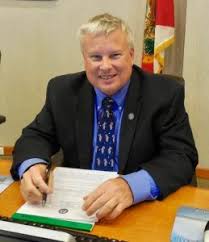By Dale Martin
City Manager
Fernandina Beach
November 6, 2020

Our easy access to computers and cell phones combined with the digitization of documents and data have created what is often referred to as the Information Society.
Dr. Karen Mossberger is an American political scientist, who, in collaboration with others, published the book Digital Cities: The Internet and the Geography of Opportunity (2013). The book defines the notion of “digital citizenship” to capture the extent to which individuals are capable of regularly and effectively using technology related to the internet. “Digital citizenship” further requires regular and effective access and use, which suggests multiple needs: access to the Internet, access to hardware and software, the skills to use technology and critical thinking skills needed to evaluate and utilize information online.
Two particular components of the concept of digital citizenship deserve additional consideration: “individuals are capable of regularly and effectively using technology related to the internet” and “the skills to use technology and critical thinking skills needed to evaluate and utilize information online.” While Mossberger’s book is primarily focused on the lack of universal internet access (access which the United Nations has declared a human right), even with access, digital citizenship requires more than “plug and play.”
Local government is part of the Information Society and plays a key role in digital citizenship, especially under the conditions of the current pandemic. The capabilities, activities, and actions of local government are now more accessible than ever before, and even with the unprecedented access, an oft-heard complaint is that “I didn’t know.”
Online information regarding City activities can be found on the City’s website (www.fbfl.us) or through other online platforms such as Facebook (www.facebook.com/CityofFernandinaBeach), Instagram (@City_of_fernandina_beach), and Twitter (@MyCOFB). Through those online sites, email addresses, telephone numbers, and other contact information is available. All of the online information is accessible in accordance with federal statutes (the Americans with Disabilities Act). The City’s online presence is managed by the City’s Information Technology Department, especially Ms. Mary Hamburg, the City’s Digital Communications Specialist. Other media sources, both print and online, also regularly provide information about City activities.
In addition to contact information, the City’s website provides a calendar of events and meetings. Hundreds of documents are available for review through the website, including agendas (and supporting documentation) for the various boards and commissions. Interested residents can register for an alert when agendas are posted to the website, typically one week before the scheduled meeting.
The City can utilize other online tools to promote digital citizenship. Two recent examples include the garbage survey and, more extensive, the Community Hub outreach effort associated with waterfront development. A summary of the comments from the Community Hub were presented at this week’s City Commission meeting (the presentation will be made available on the City’s website and Facebook page).
The online Community Hub was in direct response to the pandemic. Originally, a public forum was planned in early April to solicit comments regarding the waterfront concept which had been prepared following review by several City boards and commissions. Typically, the in-person meetings are sparsely attended, so the online Community Hub significantly achieved high participation, drawing over two thousand unique visits during the month-long availability of the site (which was extensively promoted through a variety of measures).
A challenge with the Hub was that in some instances, the effort to engage was intentionally circumvented. The Hub had a simple request that respondents provide their name with their comments: some people opted to ignore that request. If the public forum had been conducted as planned, the anonymity would not have been possible. The anonymous comments (which were both positive and negative) were acknowledged, but the associated rankings were not included: the concept of transparency routinely expected of government works both ways.
The Hub was an effort to promote digital citizenship and the associated effective use of technology. It also sought to engage the critical thinking skills needed to evaluate and utilize information online, also key a key responsibility of digital citizenship.
If interested in learning more about the City and following the activities and actions of the City, I encourage you to utilize the sites described here.
